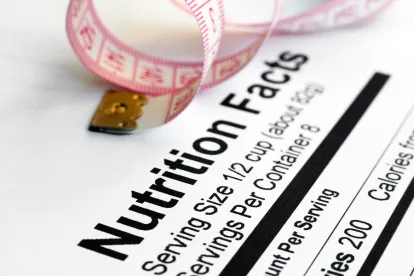On January 31, 2020, Southern District of New York Judge Alvin Hellerstein denied Plaintiff Matthew Marotto’s motion for reconsideration of an order denying class certification in his lawsuit against Pringles potato chip maker Kellogg over allegedly misleading labeling of Pringles cans. Marotto v. Kellogg, No. 1:18-cv-03545 (S.D.N.Y. Jan. 31, 2020).
Marotto sued Kellogg in April 2018, claiming that the “no artificial flavors” claim on the label of Pringles cans misled him into believing that Pringles are free of any artificial ingredients, and only found out later that the chips contained the “artificial flavorings” sodium diacetate and malic acid . He moved to certify a class of purchasers of Pringles Salt and Vinegar chips.
In December, Judge Hellerstein denied Marotto’s bid for class certification, finding that he had not demonstrated commonality because the chips at issue featured twenty different labels during the class period, only four of which included the “no artificial flavors” language. The court therefore could not determine which purported class members had been harmed by the alleged deception without looking into the circumstances of each individual member. Judge Hellerstein also doubted whether Marotto’s claims were typical of the proposed class and whether he was an adequate class representative, since he is a professional chef with training in molecular gastronomy for whom “price is no concern.”
On the motion for reconsideration, Judge Hellerstein rejected Marotto’s argument that the class should be certified because Kellogg could not prove any of the Pringles cans lacked a label saying the chips contained “no artificial flavors.” He noted that the burden was on Marotto, not Kellogg, to make an affirmative showing that the class merited certification under Fed. R. Civ. P. 23.
Judge Hellerstein also rejected Marotto’s related argument that he was not required to show that each class member actually relied on the allegedly misleading language, holding that Marotto had confused the reliance element with causation and injury, which he was required to show. Here, Marotto had not shown that any class members were actually injured, since there was no evidence that Kellogg had charged a price premium based on the claim that the products lacked artificial ingredients.
Finally, the judge found that the depiction of “real vinegar” on some labels was not sufficient to show that the label was misleading: the chips did contain some actual vinegar, so the representation was literally true, and Marotto did not prove that the average class member would infer from it that only real vinegar was used to flavor the chips.
The opinion underscores the difficulty of certifying false advertising class actions where the alleged misrepresentations were not made uniformly to class members. Watch this space for further developments.





 />i
/>i

